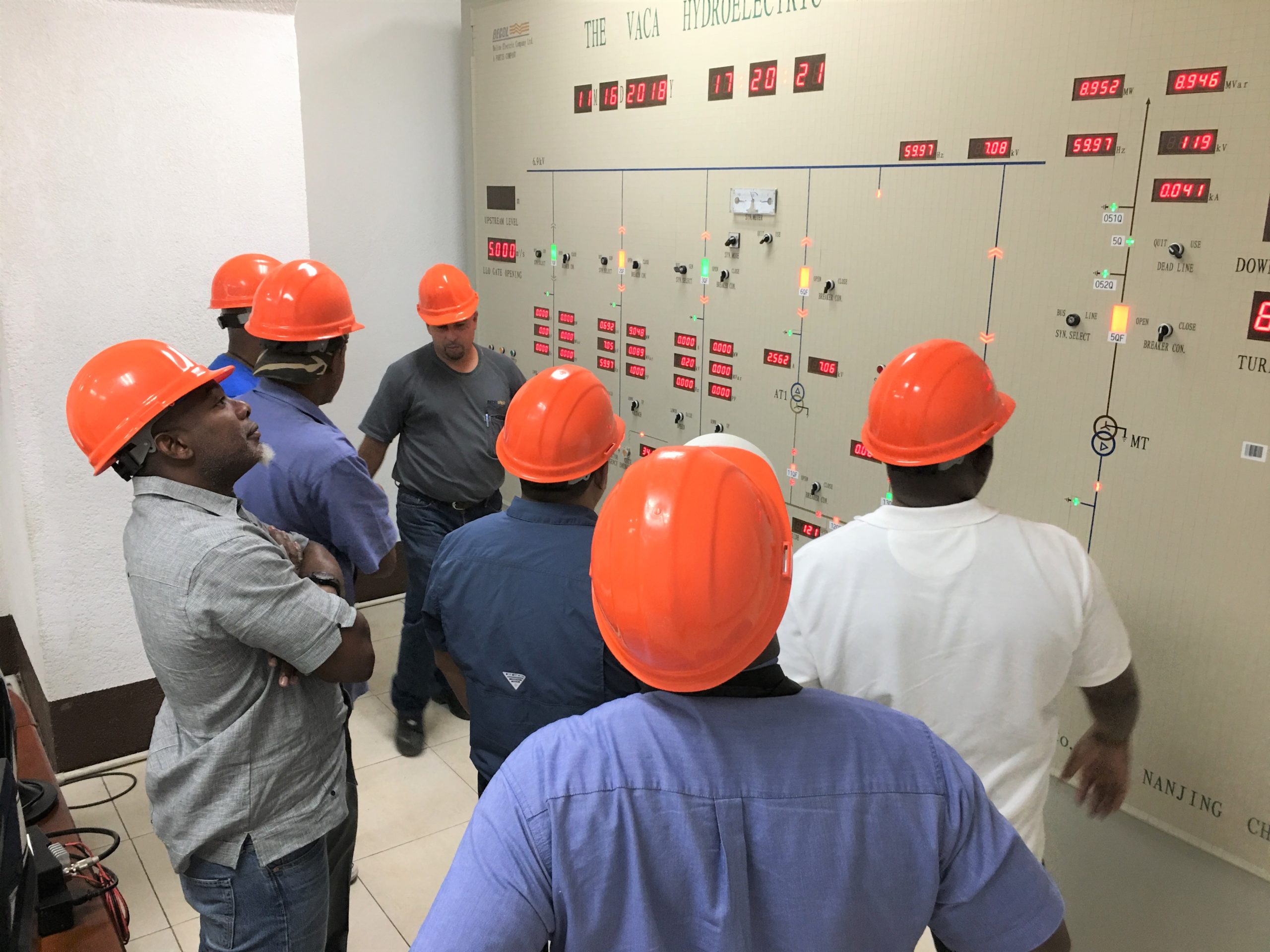
At the 82nd Special Meeting of the Council for Trade and Economic Development (COTED) Energy, held in September 2020, CARICOM Energy Ministers “endorsed the methodology, principles and practices of IRRP… as the preferred mechanism for electricity sector planning in Member States”; and “urged Member States to develop Integrated Resource and Resilience Plans (IRRPs) by 2023.”
In keeping with this mandate, the CCREEE expanded its IRRP programme to include Jamaica in the 4th Quarter of 2020. The Centre met virtually with representatives from Jamaica’s ministry responsible for energy , the power regulator, and the power utility to begin the process of sensitization and data gathering, which is the first phase of an IRRP development. The Centre is also in discussions with additional Member States toward supporting their IRRP development.
Work continued in Belize, Guyana, and Trinidad and Tobago. In Belize, demand projections were completed and validated with stakeholders, and work began on technoeconomic and grid modelling. Guyana made substantial updates to their electricity sector plans in the 4th quarter, and the CCREEE has been working closely with the utility to update its modelling work to reflect the policy advances. In partnership with the National Renewable Energy Laboratory of the US Department of Energy (NREL), the CCREEE took a deep dive with stakeholders in Trinidad and Tobago to help to better define what resilience would mean for the twin island republic, which helped stakeholders to outline key performance indicators (KPIs) and scenarios for analysis.
The CCREEE continued its programme of capacity development for integrated resource and resilience planning. On November 4th, the Centre hosted a session which provided a general introduction to energy modelling tools. The CCREEE went a step deeper on December 1st, teaming up with Energy Exemplar to deliver a more detailed introduction to the PLEXOS modelling software. Finally, on December 8, the CCREEE hosted a session on cybersecurity for resilience in partnership with NREL. Overall, capacity was built through the IRRP Programme among more than 200 CARICOM residents.
The CCREEE views holistic energy sector planning and resilience-building as key for the region’s development; and as a result, is continuing the institutionalization of the IRRP process into its suite of programmes. The IRRP process outputs a pipeline of necessary investments, the realisation of which will be supported by CCREEE’s Project Preparation Facility (PPF). The human capacity development that must undergird all resilience building will be supported by the CARICOM Energy Knowledge Hub (CEKH). CCREEE’s programmes all connect with the ultimate goal of transforming the Caribbean’s energy sector, in order to transform the lives of Caribbean people.
Within the CCREEE’s Climate Resilience Strategic Programme, the Centre is undertaking the development of IRRPs for several CARICOM Member States, as outlined above. These IRRPs are facilitated by kind financial support from the German Federal Ministry of Economic Cooperation and Development (BMZ), the European Union (EU), the Austrian Development Agency (ADA), the United Nations of Industrial and Development Organisation (UNIDO), the Kingdom of Spain through AECID, and technical support from the German Corporation for International Cooperation (GIZ), through the Technical Assistance Programme for Sustainable Energy in the Caribbean (TAPSEC). The CCREEE also benefited from support to the IRRP Programme’s capacity development initiatives from the US Agency for International Development (USAID), through the National Renewable Energy Laboratory of the US Department of Energy (NREL).